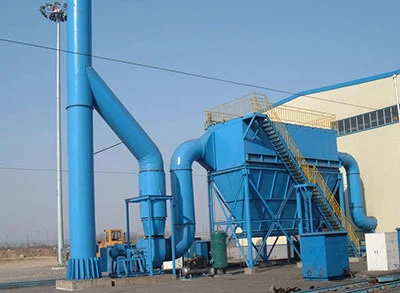Ensuring Product Purity – How Dust Collectors Maintain Clean Manufacturing Standards
Maintaining clean manufacturing standards is crucial for ensuring product purity, especially in industries such as pharmaceuticals, food processing, and electronics, where even the slightest contamination can lead to significant product quality issues. Dust collectors play an essential role in achieving these standards by effectively controlling and removing airborne particulates from the manufacturing environment. This not only helps in maintaining product integrity but also ensures compliance with stringent regulatory requirements. Dust collectors are systems designed to enhance the quality of air released from industrial and commercial processes by collecting dust and other impurities from the air. They operate using various mechanisms, including filtration, electrostatic precipitation, and inertial separation, to capture and contain dust particles before they can contaminate products or the manufacturing environment. The choice of dust collector depends on factors such as the type of dust, the required efficiency, and the volume of air to be processed.
Minimizing Contamination Risks – Dust collectors prevent airborne particles from settling on products or contaminating production areas. In industries such as pharmaceuticals and food processing, where the presence of contaminants can lead to health risks or compromise product efficacy, maintaining an environment free of dust is imperative. For example, in pharmaceutical manufacturing, dust collectors ensure that active pharmaceutical ingredients APIs are not contaminated by foreign particles, thus maintaining their purity and effectiveness and visit here www.tysum.com.

Compliance with Regulations – Regulatory bodies such as the Food and Drug Administration FDA and the European Medicines Agency EMA impose strict guidelines on manufacturing practices to ensure product safety and quality. Dust collectors help companies meet these regulations by maintaining a controlled environment that minimizes the risk of contamination. Compliance with these standards not only ensures product purity but also helps avoid costly recalls and potential legal issues.
Protecting Equipment and Reducing Maintenance – Dust accumulation can lead to equipment wear and tear, resulting in frequent maintenance and downtime. By effectively removing dust from the manufacturing environment, dust collectors protect sensitive machinery and extend their operational life. This not only reduces maintenance costs but also ensures consistent production quality, as equipment failures can lead to inconsistencies in product batches.
Enhancing Worker Safety – A clean manufacturing environment is not only beneficial for product purity but also for worker safety. Dust collectors reduce the amount of airborne particulates, which can pose respiratory hazards to employees. Ensuring a dust-free environment protects workers from occupational illnesses and contributes to a healthier and more productive workforce.
Energy Efficiency and Cost Savings – Modern dust collectors are designed to be energy-efficient, utilizing advanced filtration technologies that require less power to operate. This leads to cost savings in terms of energy consumption and operational expenses. Additionally, maintaining a clean environment reduces the need for frequent cleaning and sanitation, further lowering operational costs and enhancing overall productivity.
Dust collectors are indispensable in maintaining clean manufacturing standards and ensuring product purity. By effectively removing dust and other contaminants from the production environment, dust collector cfm chart systems help companies comply with regulatory standards, protect equipment, enhance worker safety, and achieve cost savings. Investing in the right dust collection system is essential for any manufacturing operation that prioritizes quality and safety.